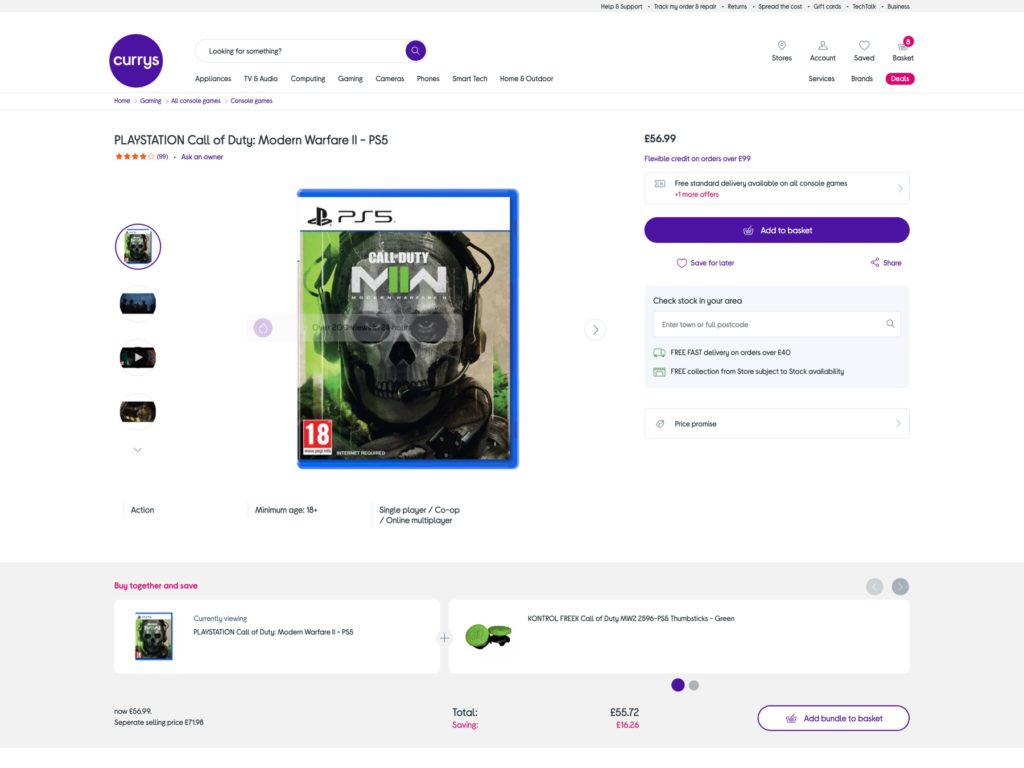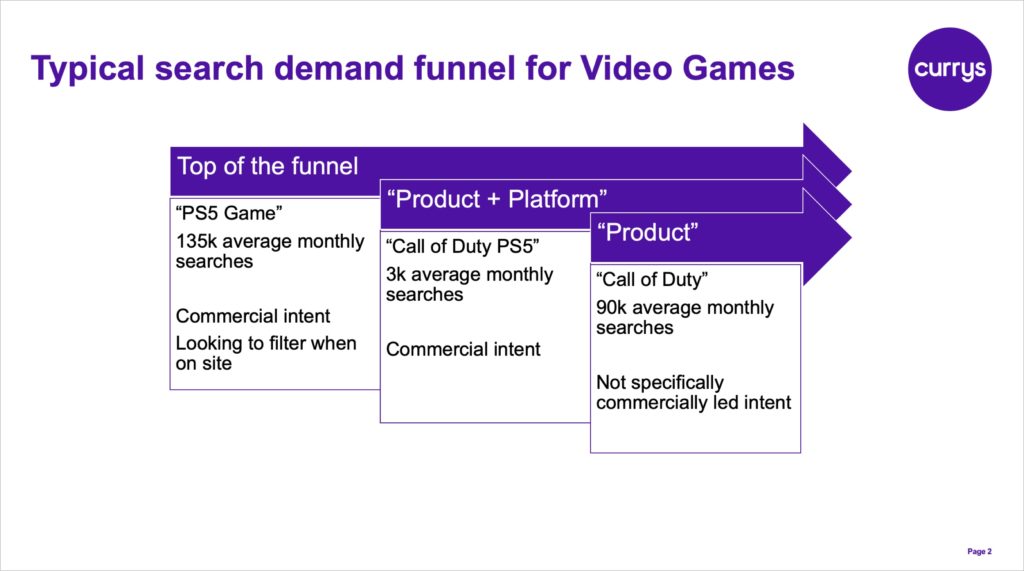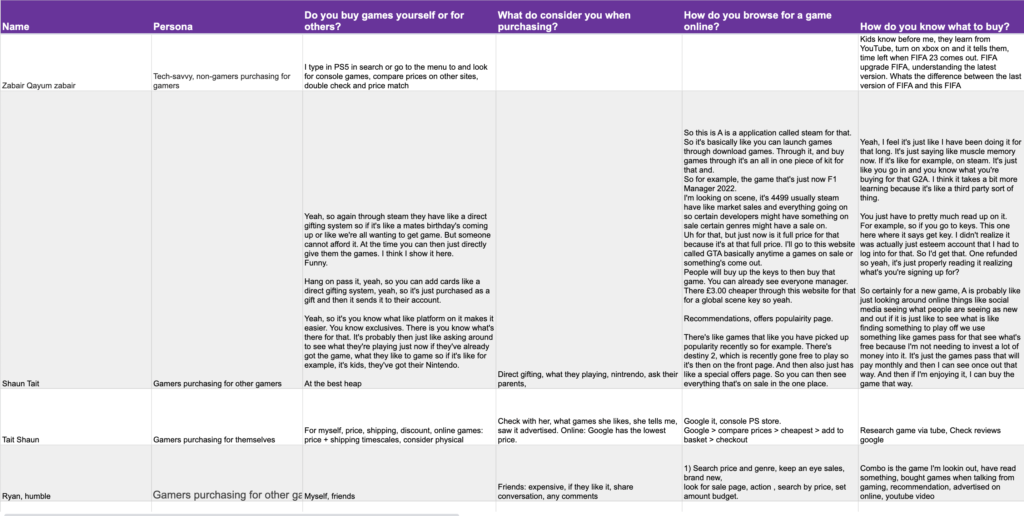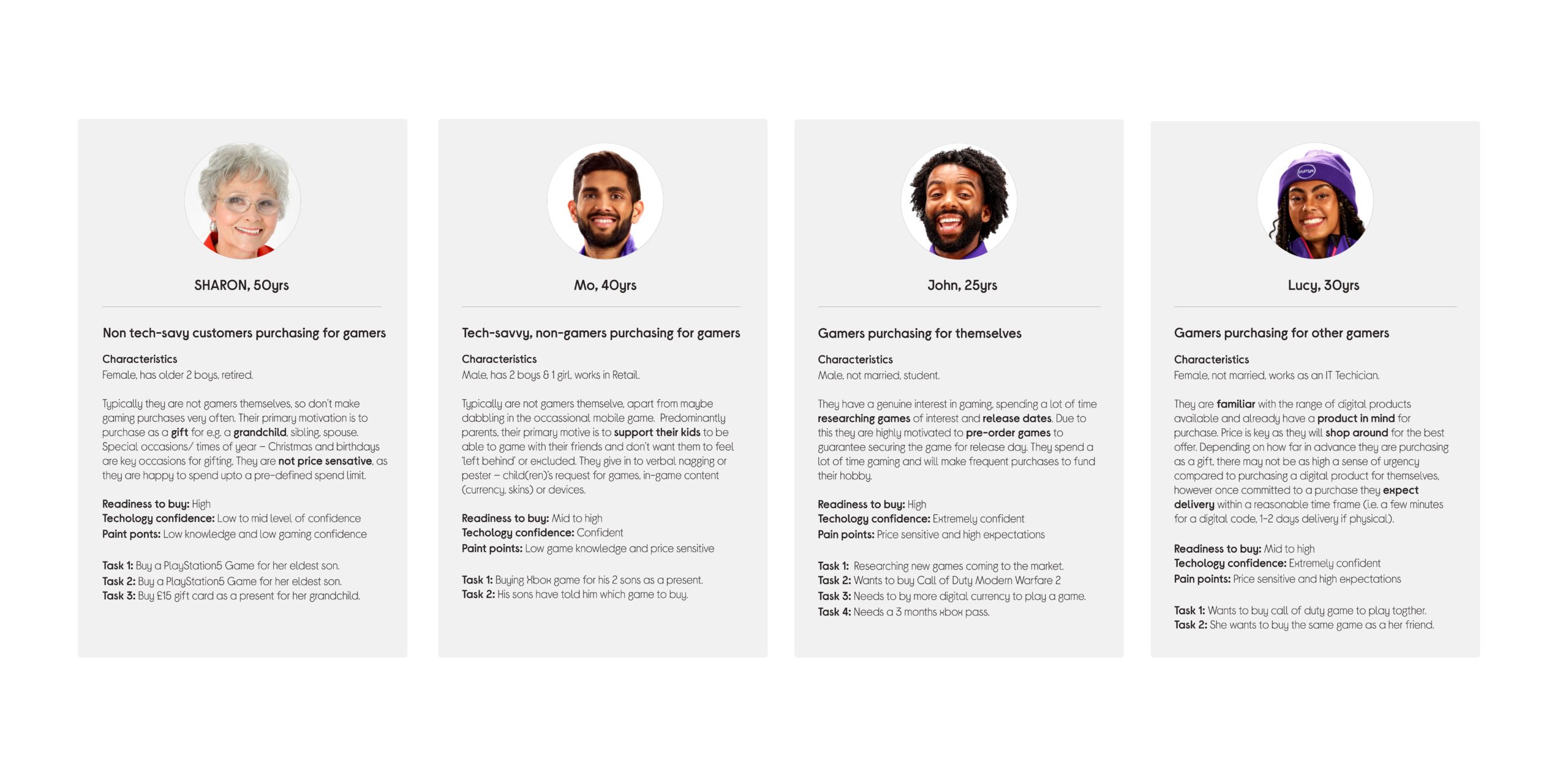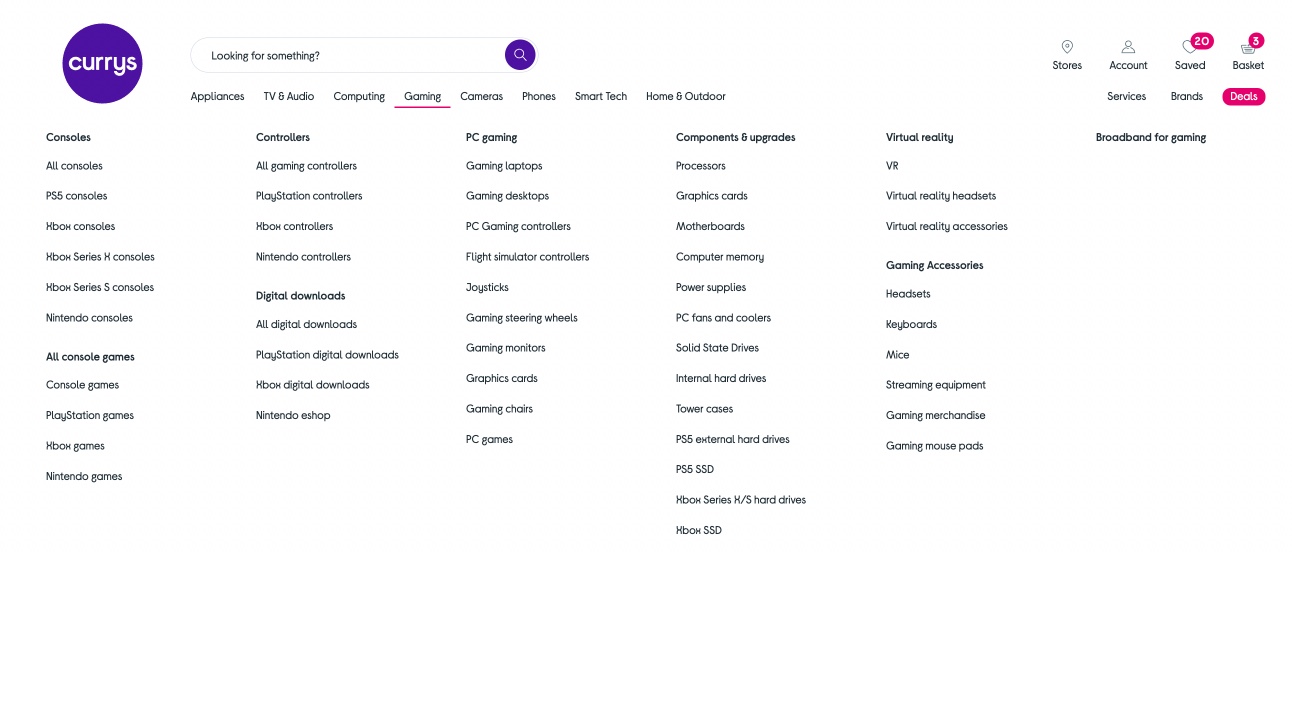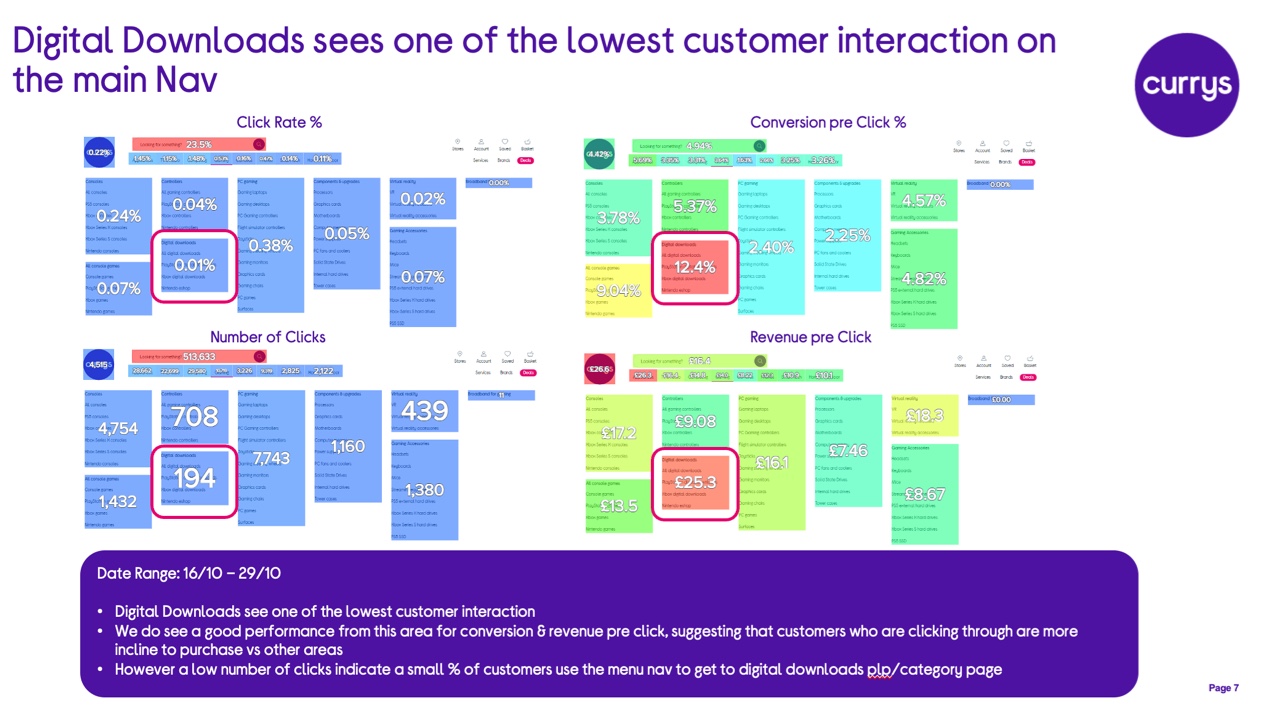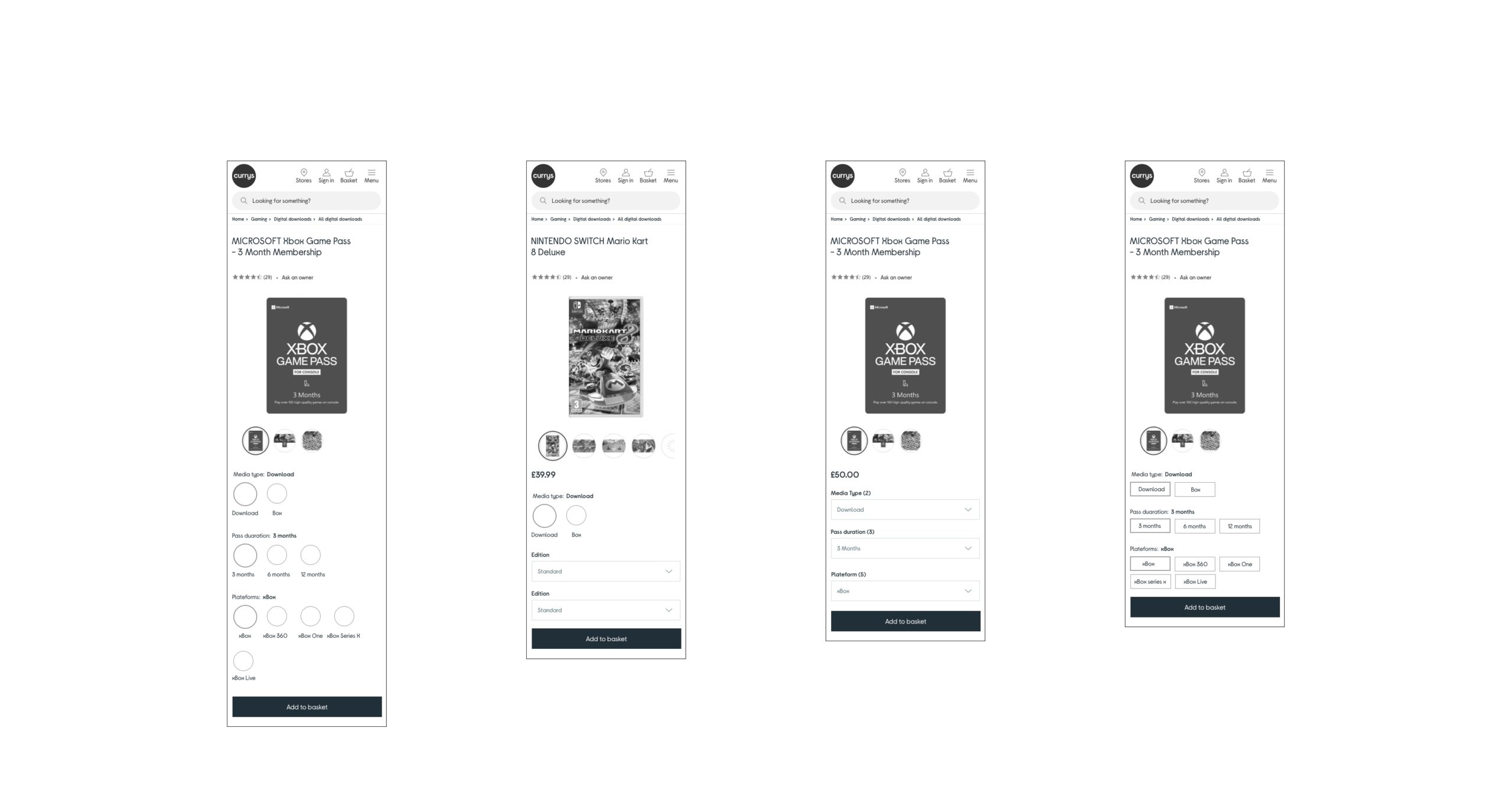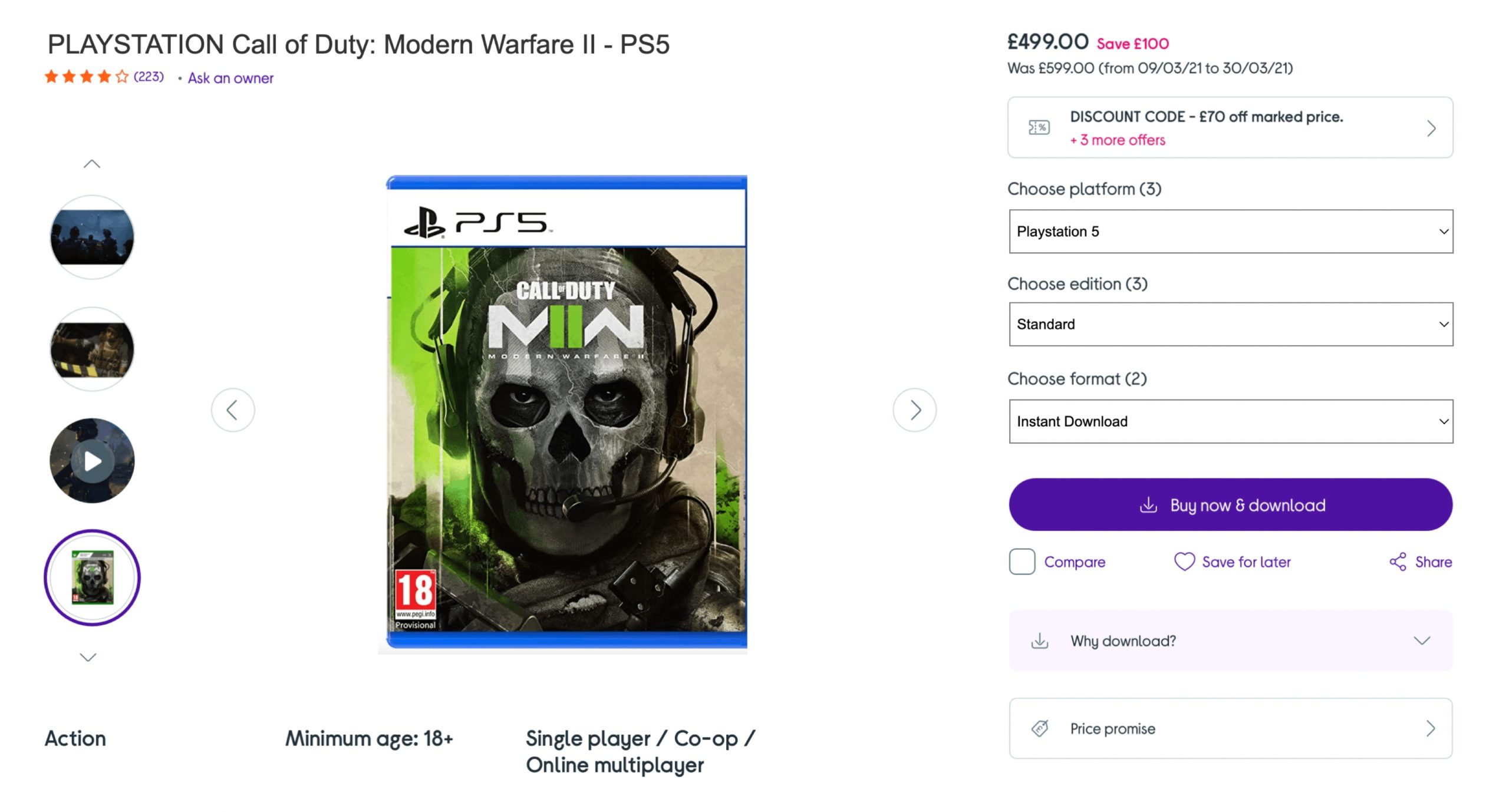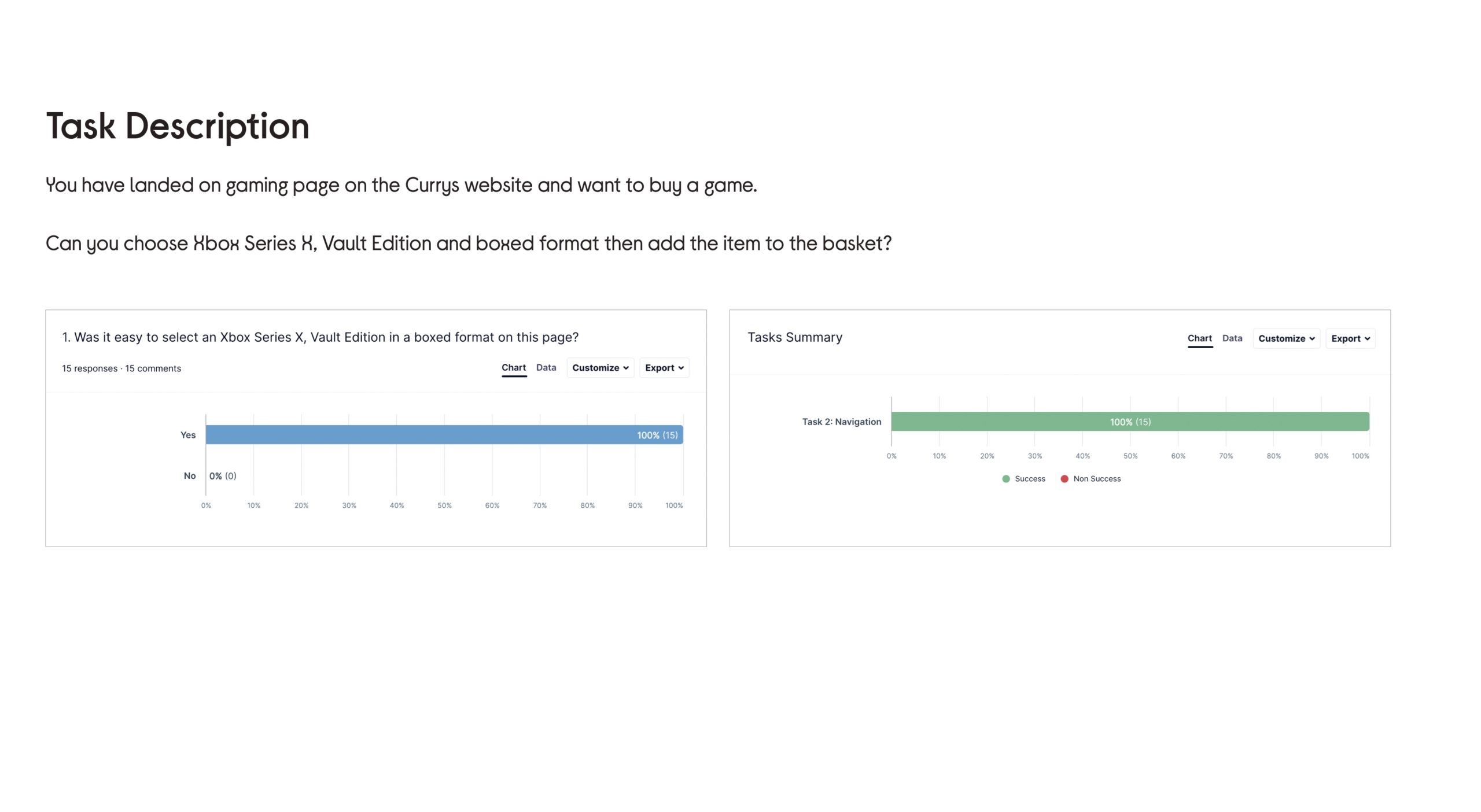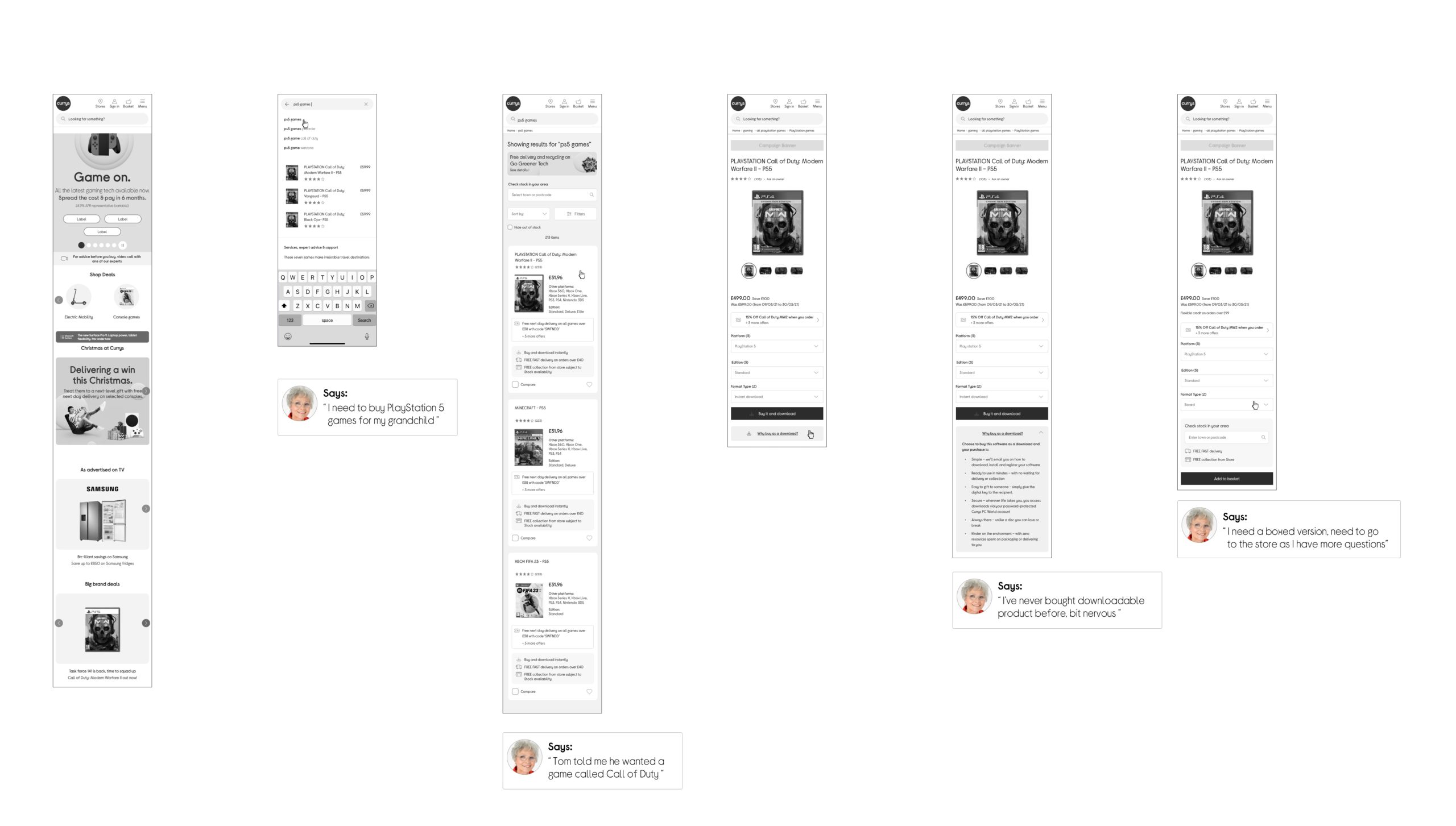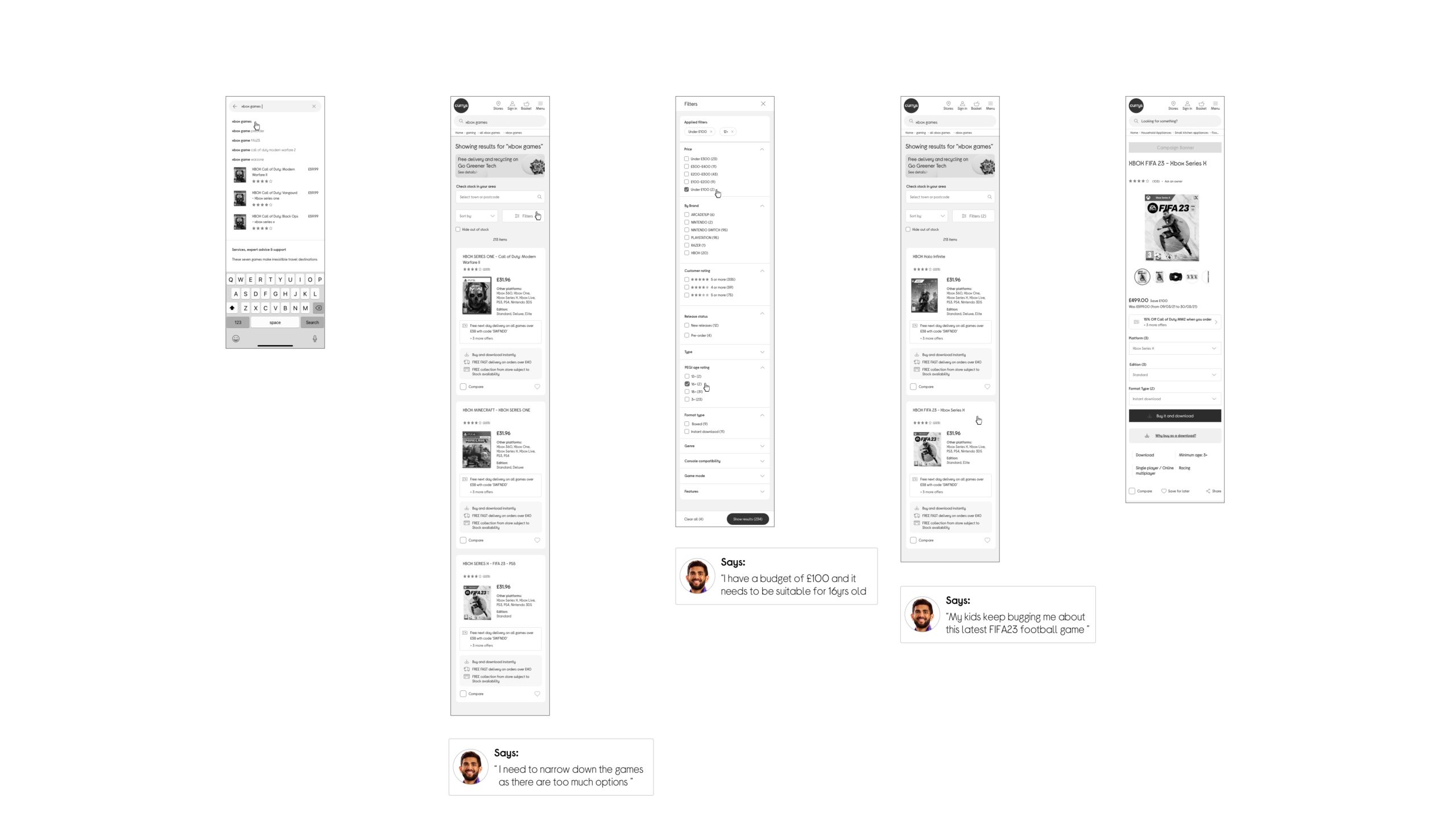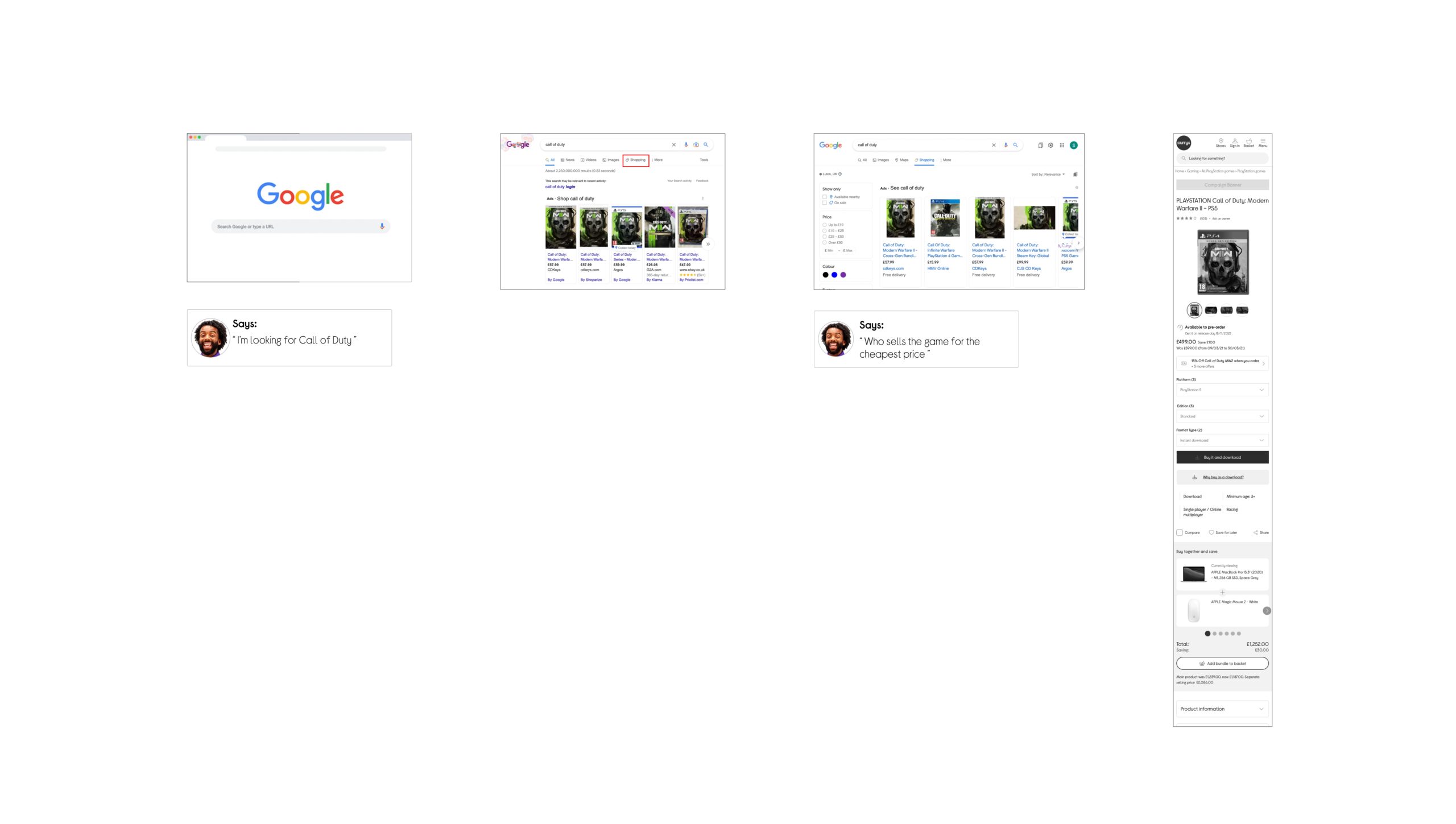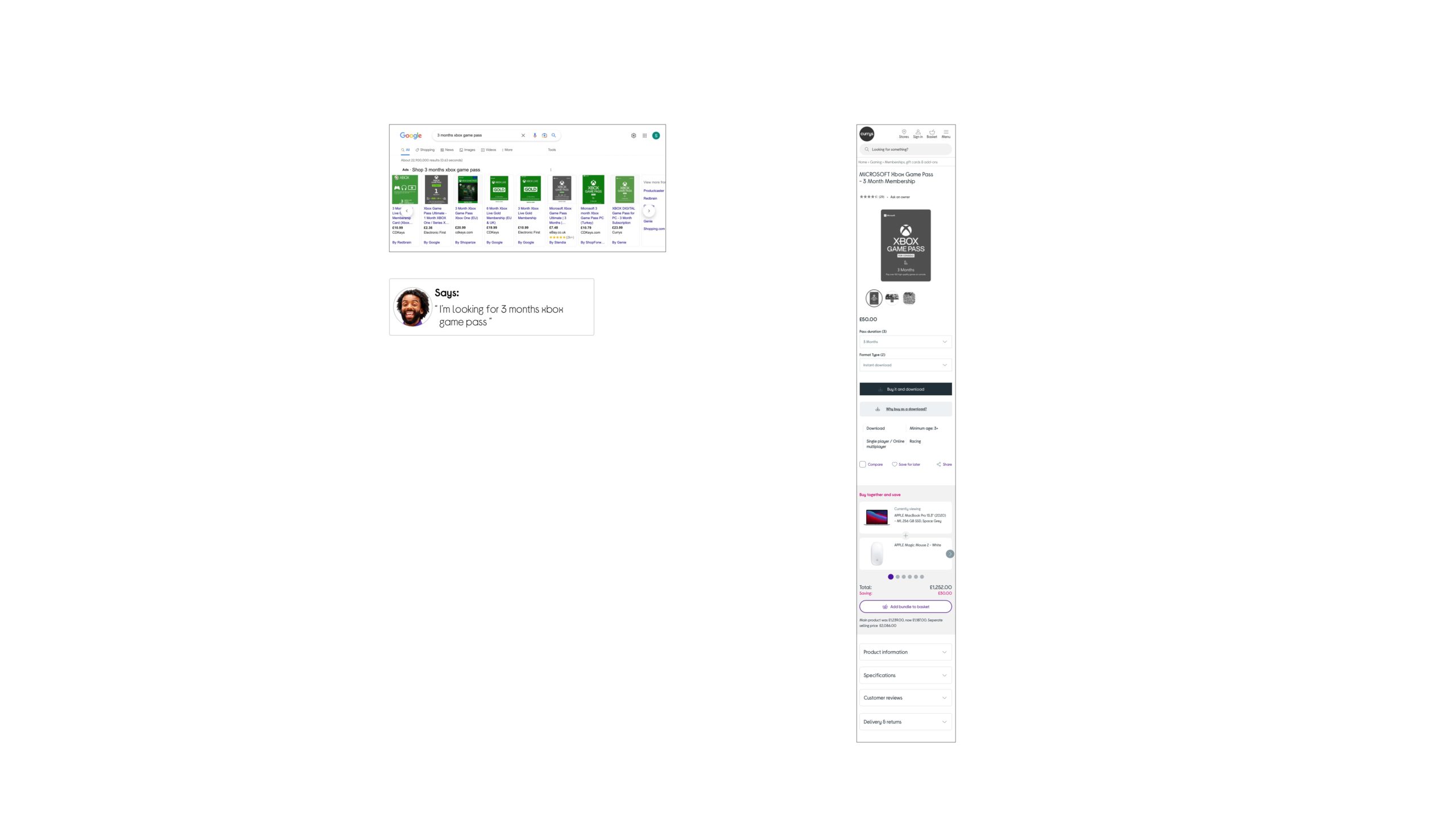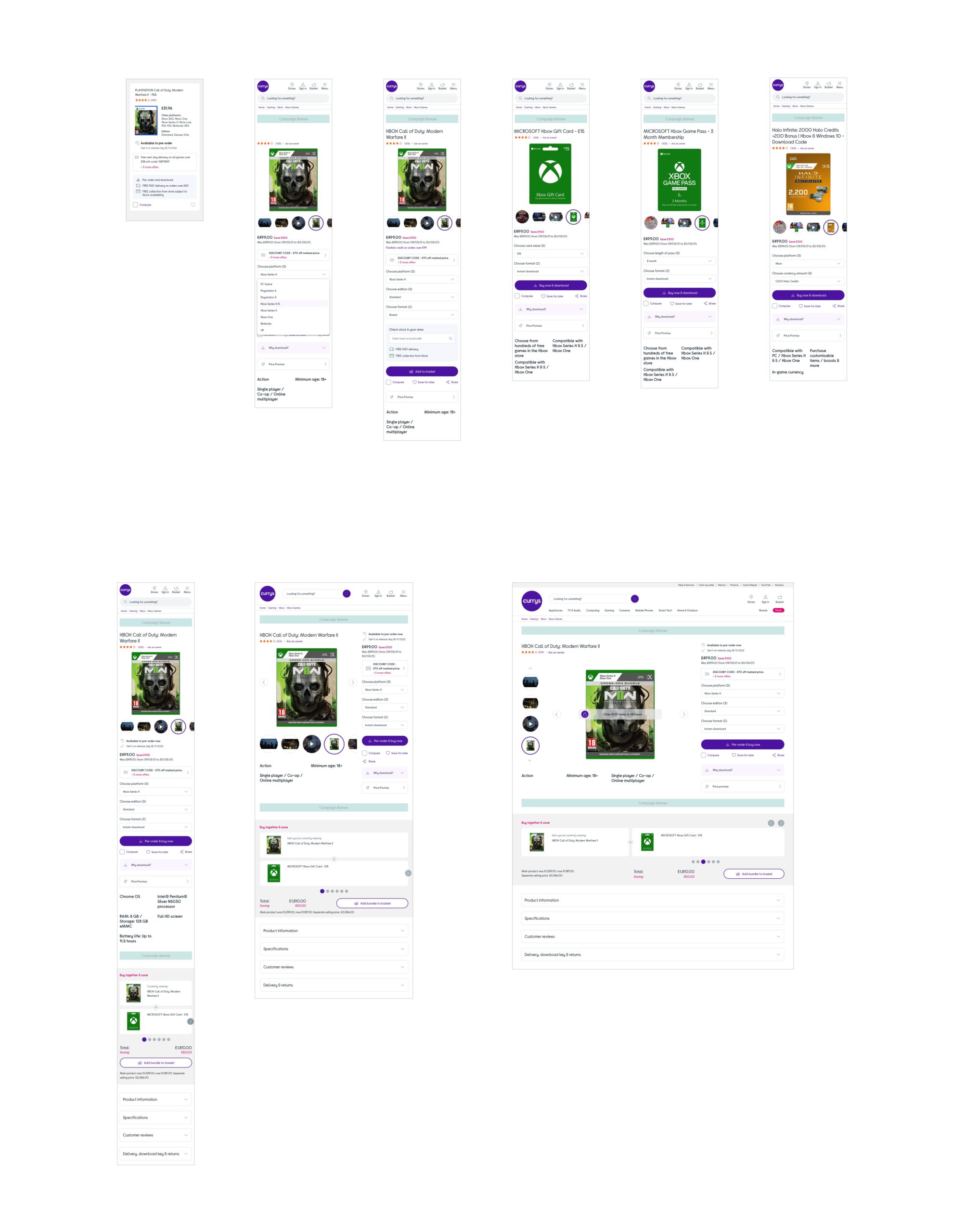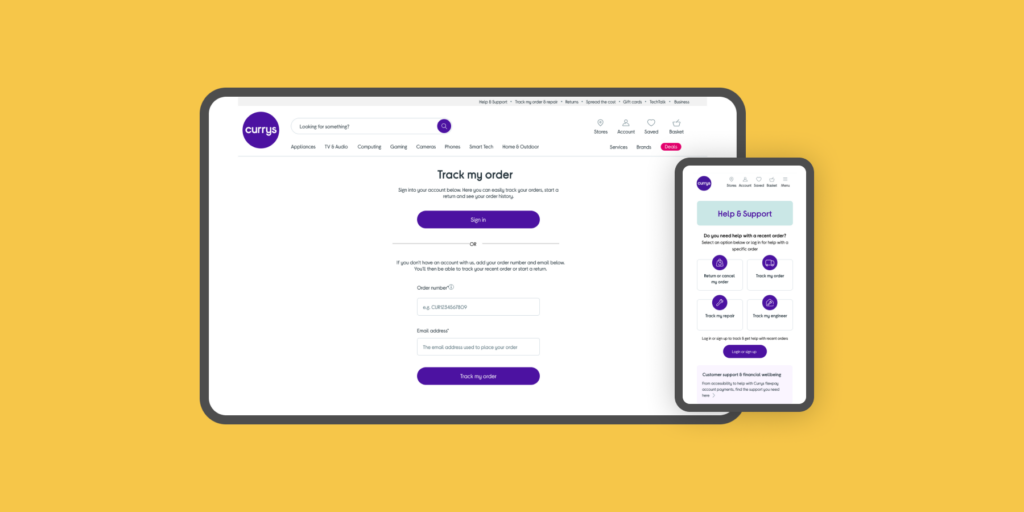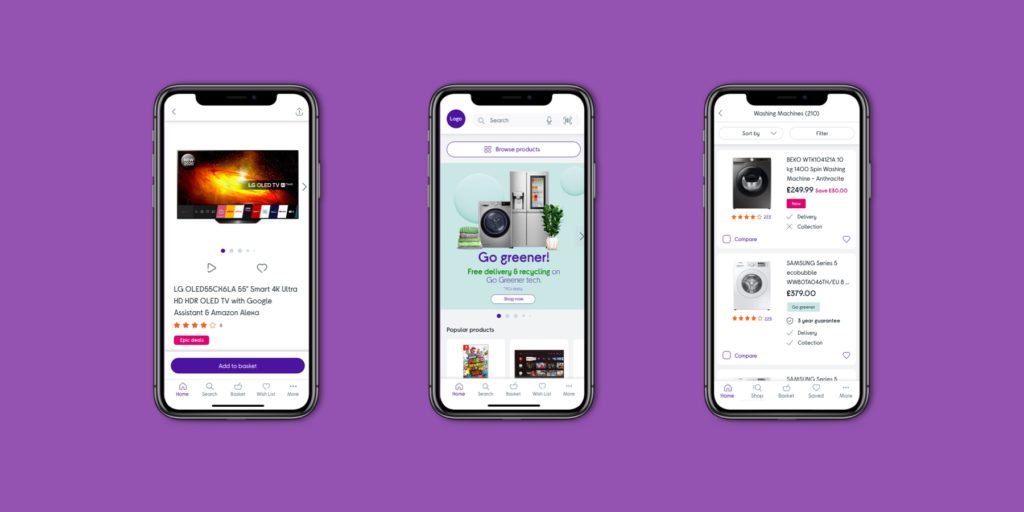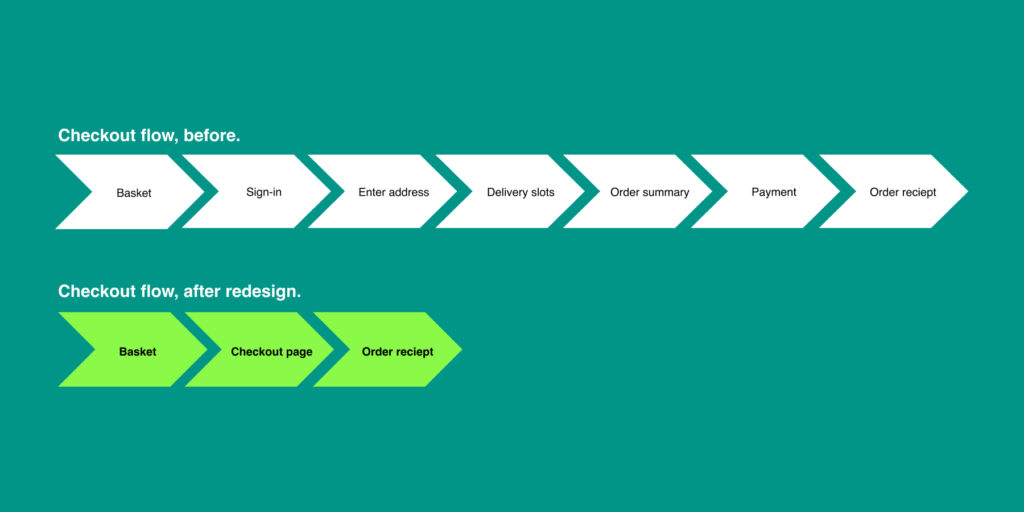Digital gaming
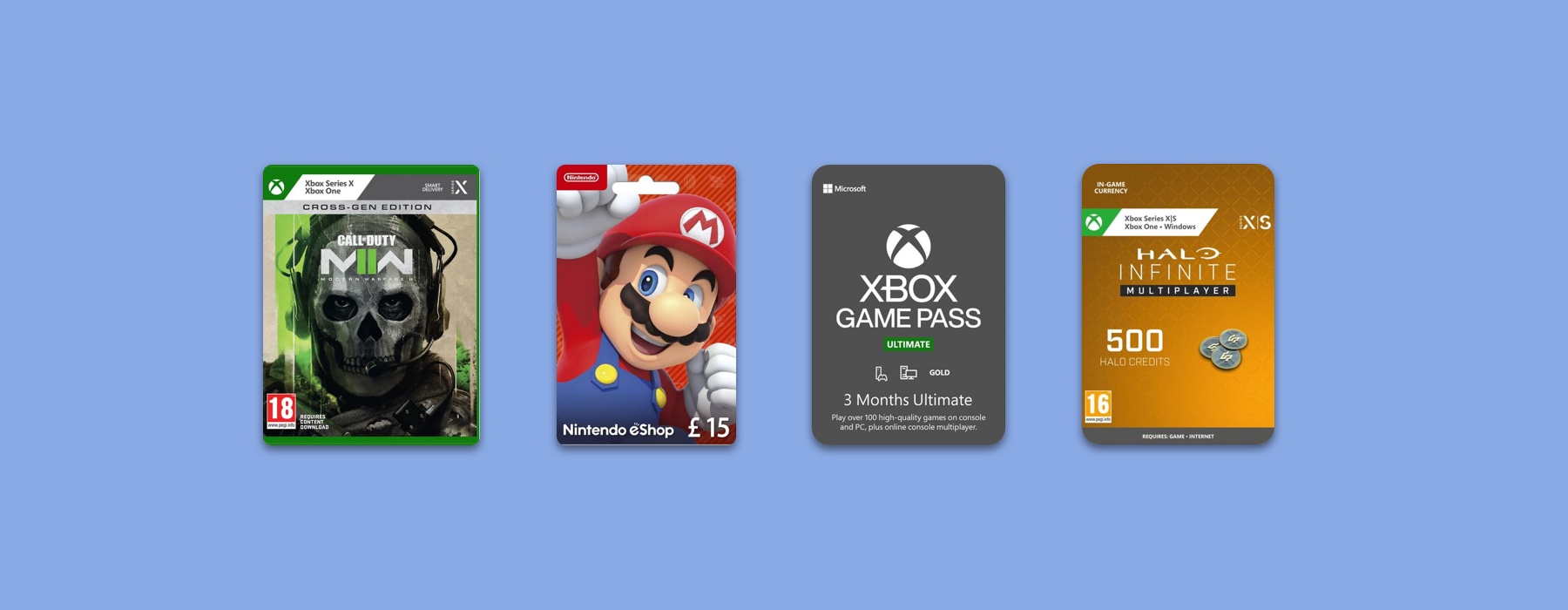
During the discovery process, I attended numerous gaming workshops to understand the problem I needed to solve. Key elements I learned included:
• Inability to buy the digital equivalent of games
• Inability to buy digital currencies or add-ons
• No option to buy eGift cards or digital game passes
• Requirement to sign in to purchase digital products
• No option to gift digital products
• No ability to toggle between different platforms
Research
SEO & Analytics
In my SEO research, I discovered that internal customers searched for games by typing the game name, platform name, or both. Analytics showed high usage of the search functionality, with most customers landing on the PDP from search engines.
Customer interviews
I conducted 15-minute interviews with gaming shoppers to learn how they shop, research, and navigate a website when purchasing a game. Key findings included:
What I found out:
- Customers want instant downloads
- Customers buy for others, like their children and friends
- They do a lot of research before purchasing
- They use internal and external search to find products
- They search using the game name and/or platform name
- Price and special offers are important
Gaming personas
From the research and interviews, I created four personas with names, ages, shopping types, and detailed descriptions of their purchasing behaviour. These personas helped create user journeys.
Mega navigation changes
The current mega navigation was structured for SEO purposes but not customer-oriented. Using Content Square data, I saw some sections received 0.01% clicks. I restructured the sections by platforms based on how customers shopped.
Droplist ideas
To allow customers to toggle between platforms, editions, or digital product types, I redesigned the selection component. I created prototypes in Axure and tested them in UserZoom to find the best customer experience.
Design
User Journeys
Using the gaming personas, I designed detailed wireframes showing how customers would navigate the journey to purchase a game, including different touch-points and screen interactions.
Final UI Design
I designed the final UI using style guides, grids, and various breakpoints. I collaborated with copywriters to finalise the copy and demoed the designs to stakeholders before launch.
Implement
During implementation, the project went over budget due to various factors. I reworked the experience without affecting the core journey, reducing scope and removing non-essential features to align with the budget.
Result
By reducing scope and focusing on core journeys, I successfully launched the digital products category, achieving significant results.
Digital sales
Six months after launch, digital products accounted for 54k transactions, resulting in £2m in revenue.
Digital gift cards
Digital gift cards accounted for 28% of total gift card sales post-launch, without any promotion, due to the design’s clarity on the benefits of downloadable products.
PS £100 Digital gift card
The most popular digital product was the PlayStation £100 gift card, accounting for 11% of sales, with a profit of £64,000. Seasonal sales like Black Friday and Christmas boosted sales.
